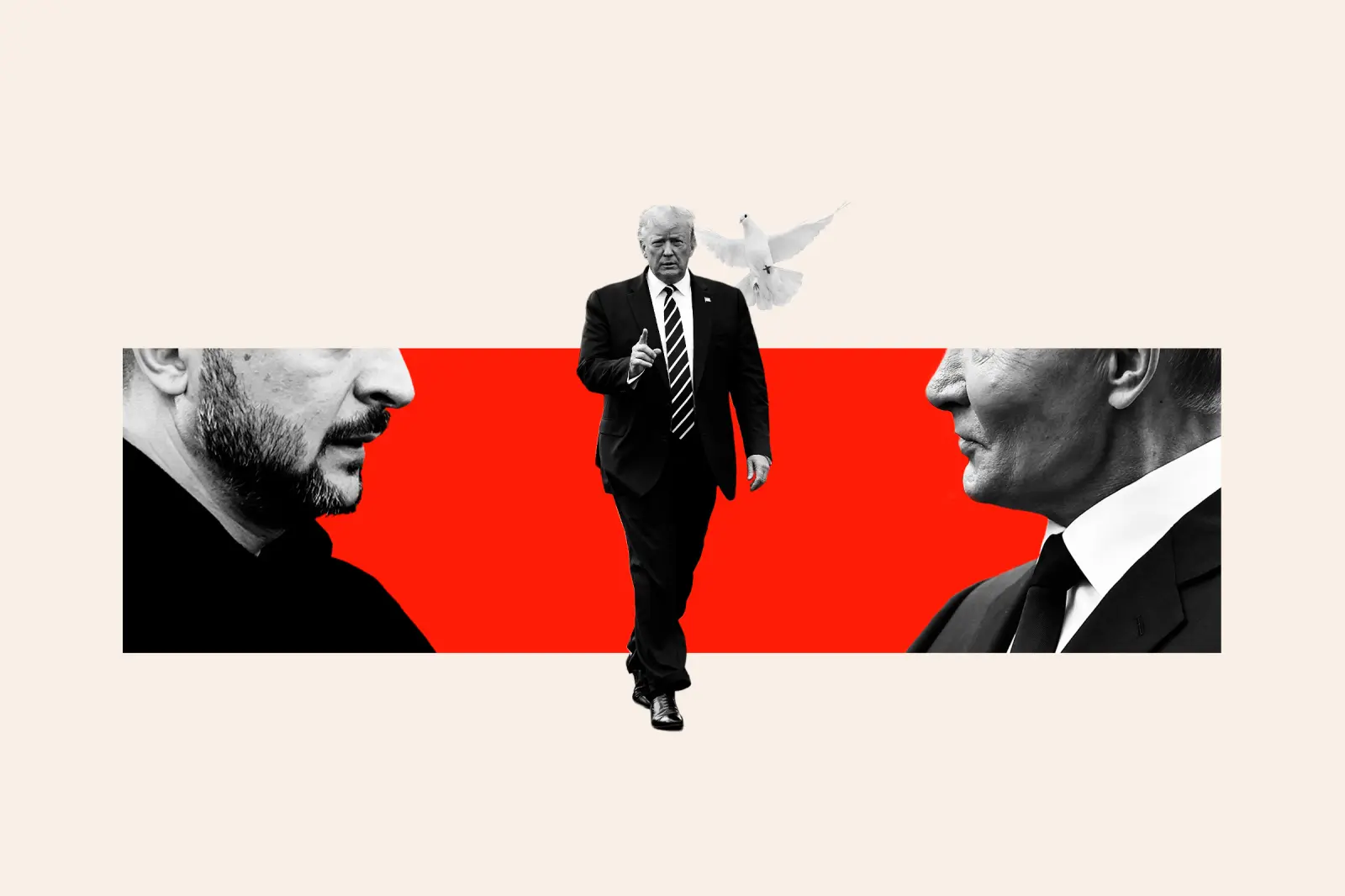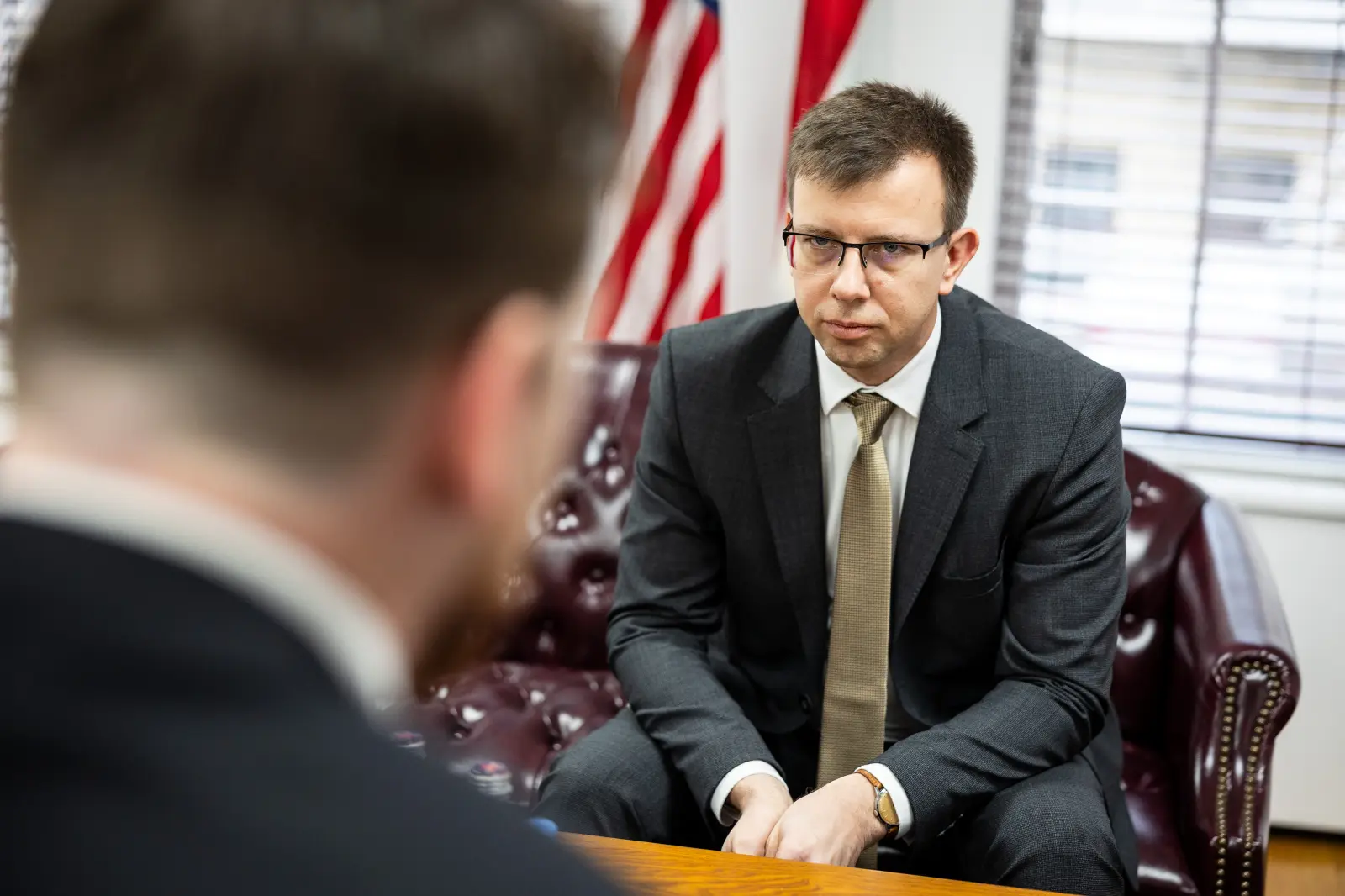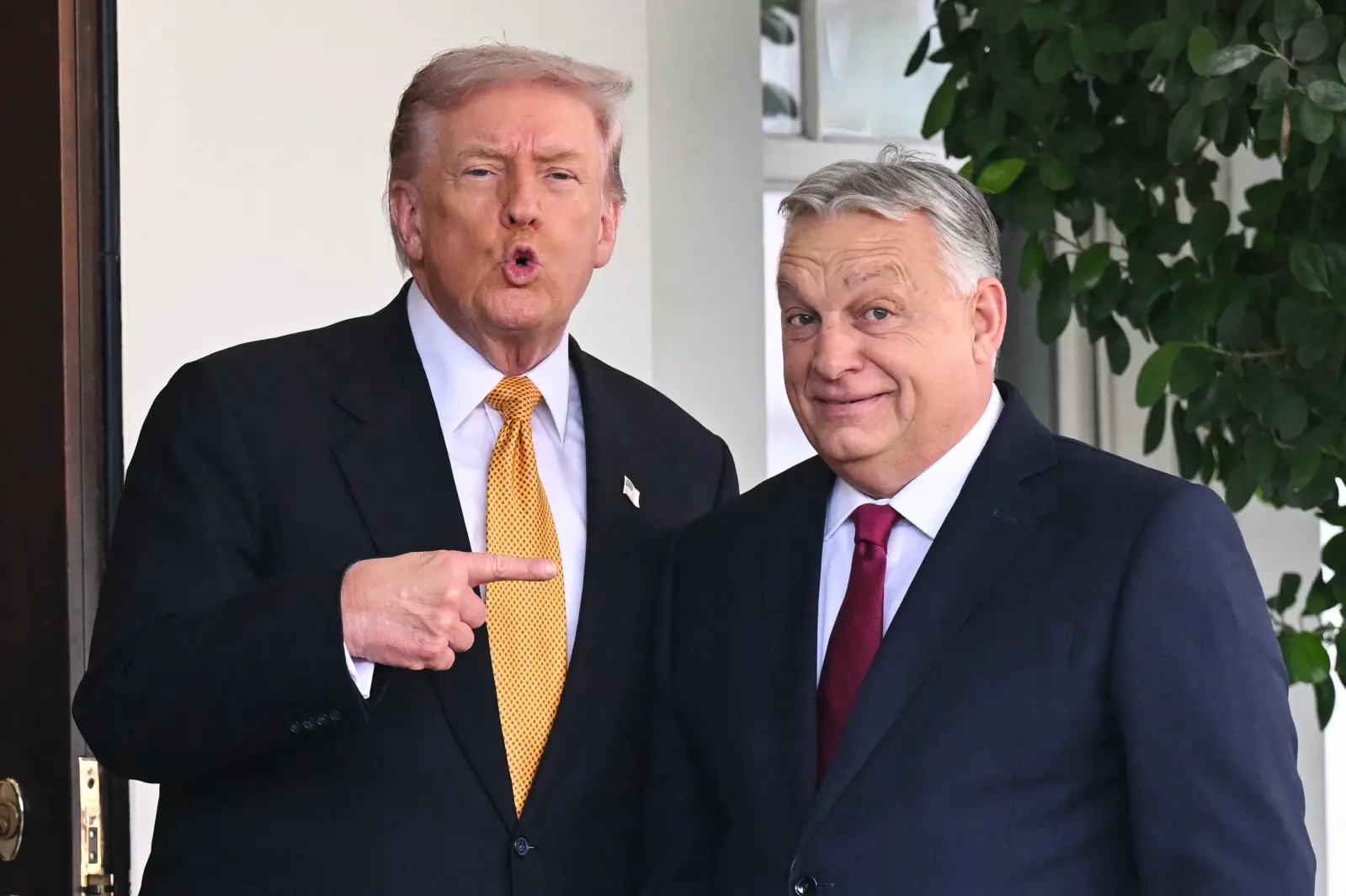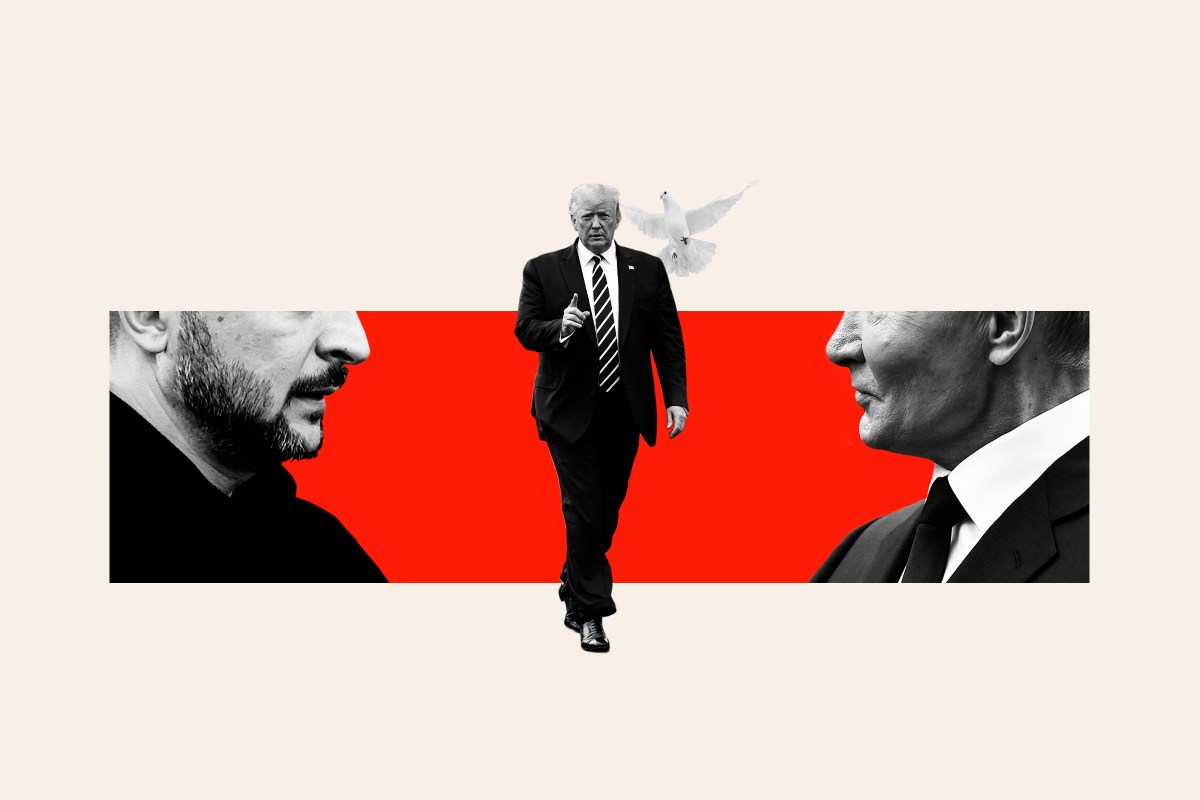As reports swirl about the White House’s engagement with the Kremlin to formulate a new deal that would end Russia‘s war in Ukraine, a top Hungarian official has told Newsweek that Budapest stands by President Donald Trump‘s push for peace—even if other European allies have eschewed talks with Moscow.
“I believe that Hungary is one of the few real full and unconditional supporters of President Trump’s peace efforts in the war between Russia and Ukraine,” Hungarian Minister for European Union Affairs János Bóka told Newsweek.
The declaration of Budapest’s backing came in the wake of Hungarian Prime Minister Viktor Orbán’s visit earlier this month to the White House, where he asserted that Kyiv would need a “miracle” to win the war now raging for more than two and a half years since Moscow ordered the invasion in February 2022.
Trump, who has expressed similar views in the past despite voicing the belief in September that Ukraine could regain all currently occupied land, appeared to agree with the fellow NATO leader’s sentiment.
Since that meeting, reports have emerged that the Trump administration was quietly consulting with Russian officials to draft a proposal to put a stop to the conflict, one that may necessitate major concessions on the part of Ukraine, including the ceding of disputed eastern territories already predominantly occupied by Russia and a large-scale reduction of armed forces.
The Kremlin has denied knowledge of the details of the alleged 28-point plan, while Ukrainian officials have confirmed they received “signals” of a new agreement being formulated, though without Kyiv’s input. European powers have offered a muted response, having long sought to back Ukraine to total victory.
But with no such win in sight, Bóka said Trump’s strategy marked the most capable path yet toward silencing the guns of Europe’s deadliest conflict since World War II.
“We believe that if you’re looking for a diplomatic solution, first, you have to build diplomatic channels, which means that you have to be in direct communication with all the stakeholders in the conflict,” Bóka said. “I think it’s self-evident. It goes without saying.”
“But this is not how it is perceived in Europe,” he added. “We welcome that President Trump is talking directly to all the stakeholders in the conflict, including Ukraine and Russia, and I believe that the European Union should do the same.”

Europe’s ‘Strategic Mistake’
Trump’s strategy of engaging Russian President Vladimir Putin, including at a historic bilateral summit held in Alaska in August, marks a major departure from former U.S. President Joe Biden’s policy of pressure and attempted isolation of Moscow. Not a single high-level meeting was held publicly between U.S. and Russian officials from the onset of the conflict to the end of Biden’s term in January.
Hungary’s opposition to anti-Russia measures, including growing lists of arms sales to Ukraine and economic sanctions on Russia—on which Hungary largely relies for oil and gas imports, made it an outlier among EU and NATO states, who Bóka said fell in line with the Biden administration’s hard-line position only to later find themselves sidelined.
“I believe that the European institutions and most of the member states, under strong pressure from the previous U.S. administration, took the view that this military conflict can have a solution on the battlefield, that Ukraine with support from the U.S. and from the European Union can actually win this war in the battlefield, and Russia can be defeated,” Bóka said.
“And I believe that, that being said, the European Union decided not to push for becoming an autonomous strategic player in this conflict, basically outsourced strategic decisions to the United States and now to Ukraine, and now is out of any meaningful discussions when it comes to the resolution of the conflict,” he added.
This strategy, he argued, “was a strategic mistake, but European leaders, I believe, will never admit this.” As Russian troops slowly push forward against undermanned Ukrainian defensive lines at great cost to both sides, with Moscow recently claiming the capture of the key eastern city of Pakrovsk, Bóka warned European leaders have “locked themselves into a path that has no clear exit strategy and no clear endgame.”
“We were opposed to the strategy from the very beginning,” Bóka said. “We are working within the European Union and also with the new U.S. administration to find another strategic path that has a diplomatic solution at the end of the road.”
Hungary has put itself at the center of efforts to forge dialogue in the interest of peace, with Orbán, too, maintaining contact with Moscow, Washington, and Kyiv. This preference for diplomacy over pressure against Russia has often drawn scorn from fellow EU and NATO members, who have sought to mount a united front.
But with Trump at the helm in Washington, Bóka felt that Hungary and the U.S. “fundamentally agree that in order to reach peace, you need to talk to everybody.”
“And we also believe that in order to reach peace, you need to have a more comprehensive agreement, and this agreement is not only and maybe not even primarily between Ukraine and Russia,” Bóka said, “but it’s also between the United States and Russia and hopefully the European Union will find the courage to become an autonomous strategic player and get a seat at the table.”
“So, any agreement will be part of a broader agreement on the new security framework and the new security foundations for Europe and on the way to resume the economic relationship with Russia, how we organize global trade, global security and what kind of institutions we put in place to safeguard and maintain this new arrangement we are developing,” he added.
“So, peace is not only peace, it’s part of a broader global arrangement that stakeholders will need to flesh out.”
When they do, he asserted, Moscow would have to be part of that process. The Kremlin has repeatedly sought to bolster its role in continental security, including through the establishment of security guarantees, and launched its so-called “special military operation” after discussions with the U.S. and NATO aimed at restructuring the European security architecture broke down in late 2021 and early 2022.
“I also believe that any European security architecture we design can only exist with the participation of Russia,” Bóka said. “So, we at some point we need to engage Russia, and we need to find a way where we can have a sustainable security framework, both hard and soft security, with Russia’s participation.”
“And, of course,” he added, “we have to make all parties interested in actually fulfilling the obligation in this new framework going forward.”

The Trump-Orbán Alignment
The effort to end the war in Ukraine is just one of the areas in which Trump and Orbán have found common ground. After a period of icy relations between Washington and Budapest throughout the Biden administration, the Hungarian leader has once again emerged as one of the White House’s closest allies in Europe under Trump’s second tenure.
During their latest encounter, Trump referred to one of Europe’s longest-serving leaders with a combined 20 years in office as “a good friend” who has “done a fantastic job.”
“He’s a very powerful man within his country, but he’s also beloved,” Trump said. “They love Viktor and people that know him do. He’s run a really great country, and he’s got no crime. He’s got no problems like some countries do.”
Bóka said the two men shared similar outlooks on a number of core ideological issues.
“I think that in addition to the personal chemistry, there’s a very strong and very deep political understanding,” Bóka said. “Basically, they have a very aligned strategic vision, and this strategic vision, I believe, is built on the understanding that you have in your focus, in the center, your sovereign nation. So, I believe one of the pillars of their political worldview is sovereignty.”
“I believe the other pillar is this Judeo-Christian civilization or foundation, how they how they look at things, and the third one, and it come from the sovereigntist vision, you have the right to determine who enters the territory of your country and who does not enter, who can stay on the territory of your country and who cannot,” he added. “So illegal migration should and can be stopped.”
Thus, Budapest is also one of the few European nations to openly back Trump’s tougher visa and border policies, as Orbán also clamps down on immigration at home, rejecting the EU’s push for more open asylum practices. The surge in migrants since the war in Ukraine began has since spurred defiance toward the EU from other nearby nations, including Poland, the Czech Republic and Slovakia.
Bóka viewed this battle as part of a broader effort, shared with the White House, to prioritize diplomatic engagement to find solutions to conflicts—one of Trump’s primary goals in his quest for a Nobel Peace Prize.
“With the fight against illegal migration comes also the understanding that in the current global political setup the most important issue is to work for peace,” Bóka said. “If military conflicts could be terminated or discontinued, this gives you the political room to implement all the other strategic visions that you have in your mind, and I believe this is a very strong foundation for the corporation.”

No to the ‘United States of Europe’
While Hungary has expressed admiration for the U.S. under its current leadership, Budapest has been a major opponent to what it views to be attempts by the EU to emulate the U.S. governance model by increasingly bringing its 27 member states under a common set of laws and directives, be it on the war in Ukraine or other internal issues.
Bóka said that Hungary, which joined the Brussels-based bloc in 2004, would remain firm in its “very clear and very strong vision” of what European integration should look like under the EU.
“We believe that the European integration is basically the fulfillment of a very simple promise that together we can be stronger than individually, but even together, we can remain what we are,” Bóka said. “And we believe in the European integration as a cooperation between sovereign countries.
“So, the idea is not to dilute or replace your sovereignty with something else,” he added, “but to strengthen nations and strengthen member states in order to lead them to the 21st century, to retain their sovereignty also in the 21st century.”
Now, however, he felt that “the European Union has reached a point where we now can no longer avoid answering some very serious questions about the fundamentals of European integration” that EU officials have thus far “always managed to elude or avoid.” The main one is “whether we want the United States of Europe or we want a cooperation between sovereign countries.”
“Our answer to this question is that we want to maintain the sovereign nations. We don’t want the United States of Europe. We don’t want a federal agenda,” Bóka said. “We want a sovereigntist agenda, and this will be the question for the European Union to answer in the in the next years. This is the political issue in the EU now.”
